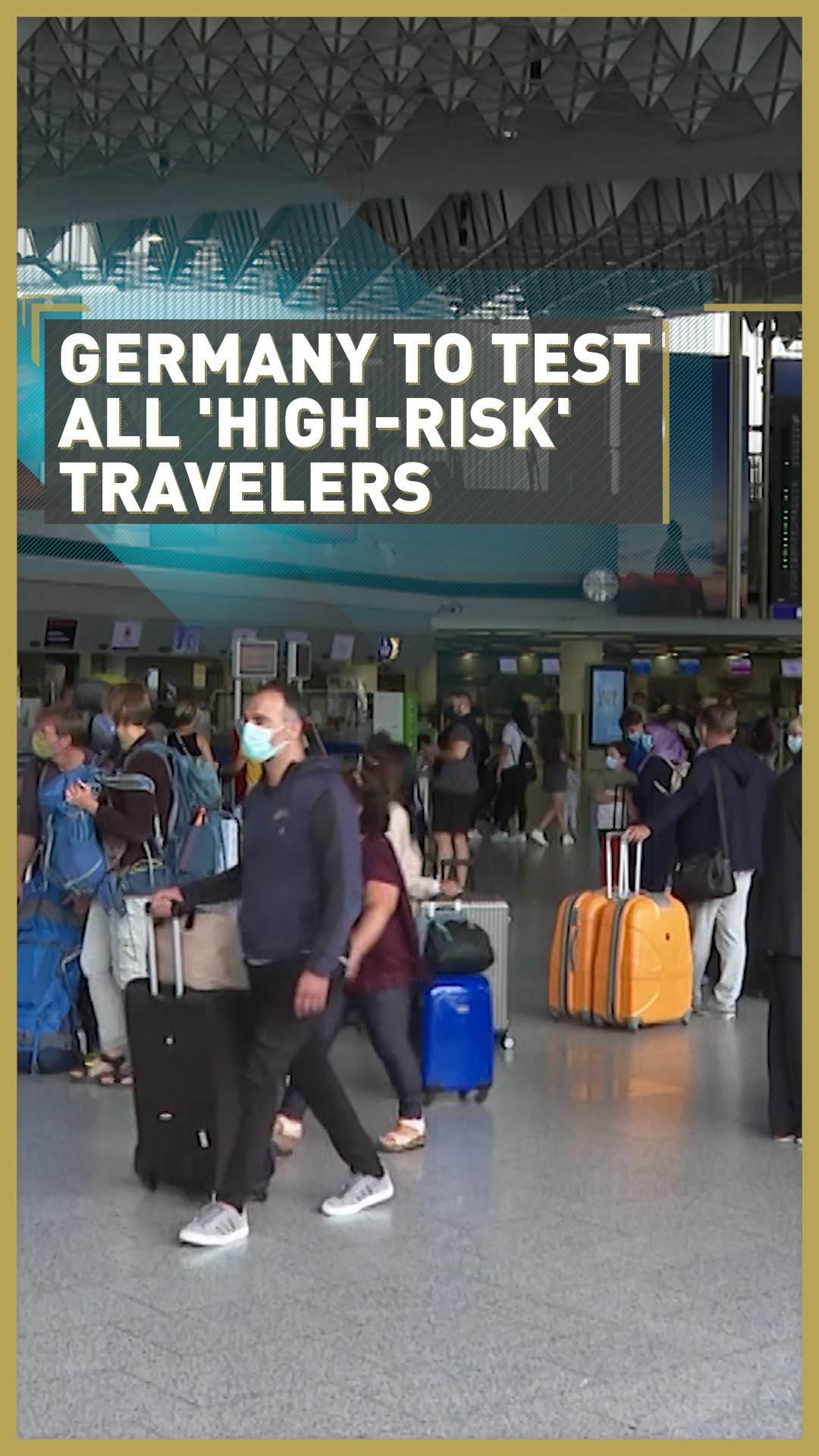02:24

In the next few days, Germany will introduce compulsory COVID-19 testing for passengers arriving from countries considered to be high-risk.
Some critics have argued that testing passengers is no guarantee of containing the virus and that enforced quarantine periods are the only way to guard against false negative results.
But Germany's health minister, Jens Spahn, says the measures will be introduced at airports and train stations later this week.
It means that anyone traveling from an area deemed to have a high infection risk will be tested on arrival in Germany.

Germany will introduce compulsory COVID-19 testing in the coming days for travelers arriving from 'high-risk' countries. /AFP
Germany will introduce compulsory COVID-19 testing in the coming days for travelers arriving from 'high-risk' countries. /AFP
More than 125 countries are currently on that list, including the U.S. and Mexico and neighboring Luxembourg.
There are two testing centers at Frankfurt Airport. One, being run by the company Centogene, has already tested more than 40,000 people in a month.
That number has jumped rapidly since the government announced last week that tests would be free. At the moment, the procedure is voluntary, but a negative result cuts out the need for quarantine.
Fast-track results take three to four hours. The majority get an answer within 24 hours.
Peter Bauer, the chief genomic officer for Centogene, told CGTN that airport testing is imperative to limit imported cases of the virus.

More than 125 countries are on Germany's list of high-risk nations, meaning many airports will have to carry out up to 10,000 tests a day. /AFP
More than 125 countries are on Germany's list of high-risk nations, meaning many airports will have to carry out up to 10,000 tests a day. /AFP
"The pandemic started with airports and flight travelers, and the risk is still the same," he said. "We have learned in the past three to four months that many of those who tested positive don't show any symptoms. Therefore, I think it is ultra critical to be able to control the pandemic and be able to steer it for the elderly and those most at risk."
With children returning to school in some parts of Germany and other areas reporting a rise in cases, it is part of the latest effort to stop a second wave.
But it is a huge logistical challenge.
When the German government makes tests compulsory for those traveling from high-risk areas, current testing sites will require rapid expansion.
Some estimate that in Frankfurt alone, they will need to be able to carry out 10,000 tests a day to cope with the increase in demand.
Check out our new six-part podcast series Notes on a Pandemic as CGTN Europe finds out how business, science and people have risen to the challenge of COVID-19.